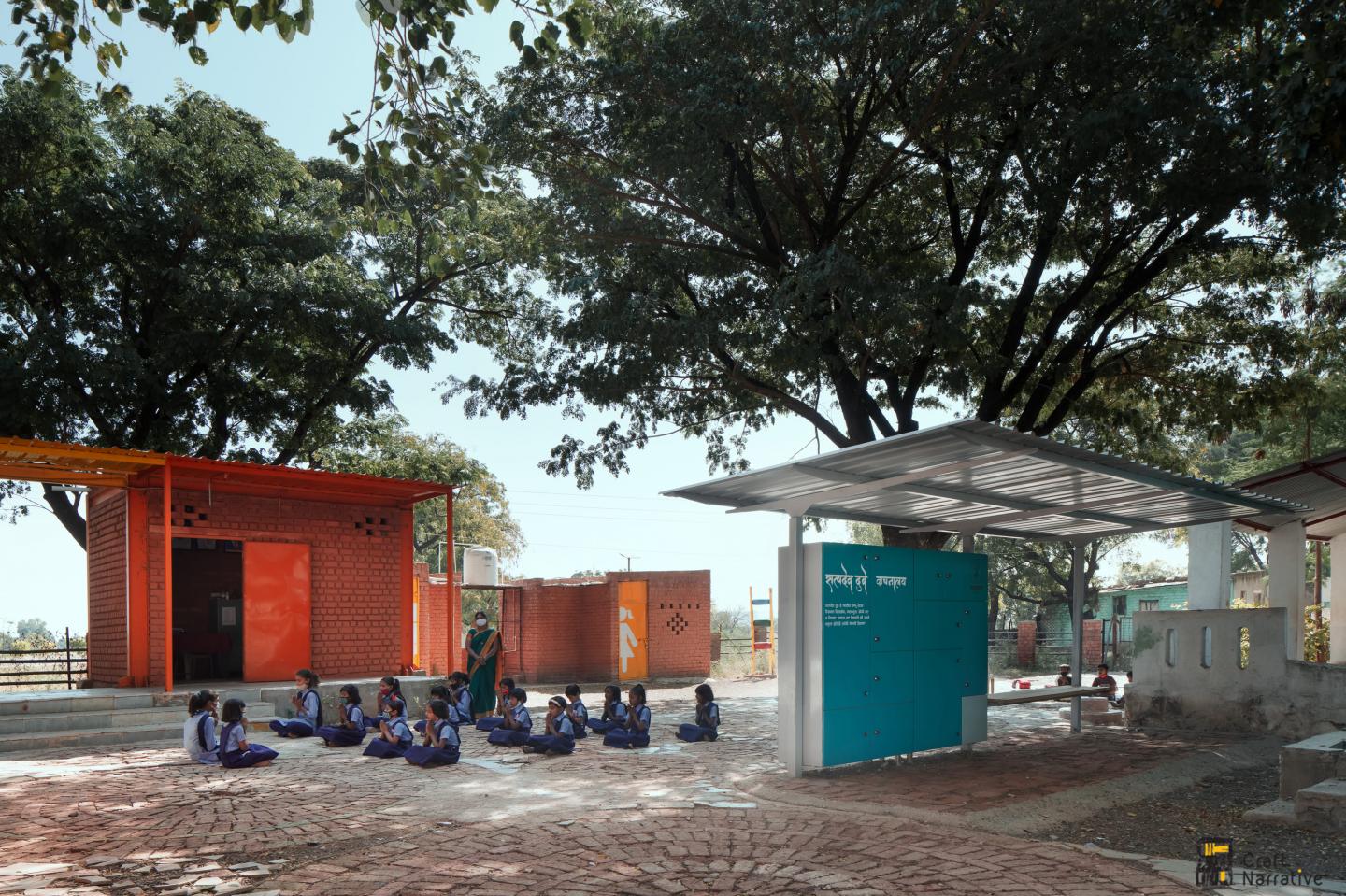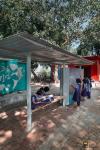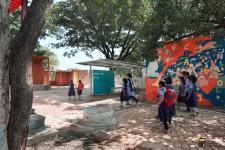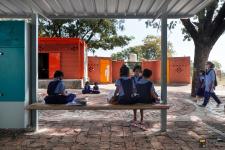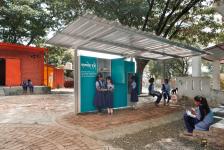As we trace back our academic culture to the gurukul system while evolving into a society that focuses on technology in education, the Indian demographic context cannot be ignored. The quest for knowledge doesn’t know restrictions, it is where the willingness is— across age groups and interests, and it has to be addressed at the grassroots level in order to excel collectively. What better way to address it than to start from the villages of India, where natural inquisitiveness thrives, despite proper infrastructure and resources.
“When there are bus stops in each village, there should be a library stop too.”
This was the thought behind Rajshri Deshpande’s initiation for Library Pod—an arena for knowledge that has the potential to form a communal space where villagers of diverse ages can gather, and accomplish the reading habit and also a perfect setting for storytellers too. The crux of the project lies in its location—it is a deliberate architectural intervention that utilizes only 17.16 sqm of space in a rural school that has an area of 220 sqm. The pod is built where knowledge resides—a school in the village of Aurangabad, Maharashtra. It takes up a lot less space as compared to the impact it puts on the virtue of education. The structure is strategically built under a peepal tree, in a space encircled by graffiti artworks created by local artists & students. It consists of a storage shelf and a projecting metal roof designed to shield the users from extreme weather conditions, made up of thin steel plate rafters and purlin that taper towards the edges to express the lightness against the visually heavy bookshelf. The entire unit in metal doubles up as water-tight bookshelves and as blackboards on the other side, which cater to the outdoors, making it suitable to conduct a class under the peepal tree as well. Since it is outside the built school structure and open to sky, the bookshelves had to be made water and dust-free by using rubber gaskets to seal them and GI sheets to make up their framework and shutters. The bookshelves were made by the manufacturers of streetside electrical distribution board boxes, who have prefabricated the unit and assembled it at the location to maintain workmanship and quality. An extension of this unit is made by adding a rubber wooden bench beside it. The flooring for this pod is constructed with bricks, in a way that they start from level zero and up to the pod’s level by creating small steps in between, also serving as a place to sit. The brick base is covered by the overhang which is supported by 80mm*80mm M.S. box sections as columns. The pod also serves as a backdrop for early morning gatherings and lunchtime play activities in the school while successfully accomplishing multifaceted activities for students and villagers alike. With that being stated, the Library Pod is an example of how the biggest of achievements start with the smallest of inventions.
The pinnacle of mankind can be understood by the way inventions are made. It is in the bigger achievements that the technological advancements are measured, however, the smallest of interventions making the biggest of differences are worth paying attention to. Completed in December 2021, the Library Pod is a successful initiative by Nabhangan Foundation, which now serves as a place to learn, contemplate and play around.
2021
Google Location of the Project: https://goo.gl/maps/zJKM9xpigG2igQPo9
Duration of the Project: 5 months
Plot Area: 220 sq.m.
Built-up Area: 17.16 sq.m.
Project Size (in sq. ft.): 184.8 sq.ft.
Project Cost (approx.): ₹1,55,000
Material Palette of the Project: Galvanised Iron, Mild Steel, Rubber Wood and Brick Paving
Color Palette for each area/space: Turquoise Blue, Metallic Gray
Construction Materials- Tata steel
Paint- Jotun
Structural Engineers- Sonal Nimbalkar
Contractors- Wasim Kazi
Firm’s Website Link: http://www.craftnarrative.com/
Firm’s Instagram Link: https://www.instagram.com/craft.narrative/
Principal Architect(s): Ar. Yatindra Patil and Ar. Vijay Kharade
Team Design Credits: Bharat Yadav, Shubham Kapre and Ajay Harsure
Author: Tanvee Abhyankar
